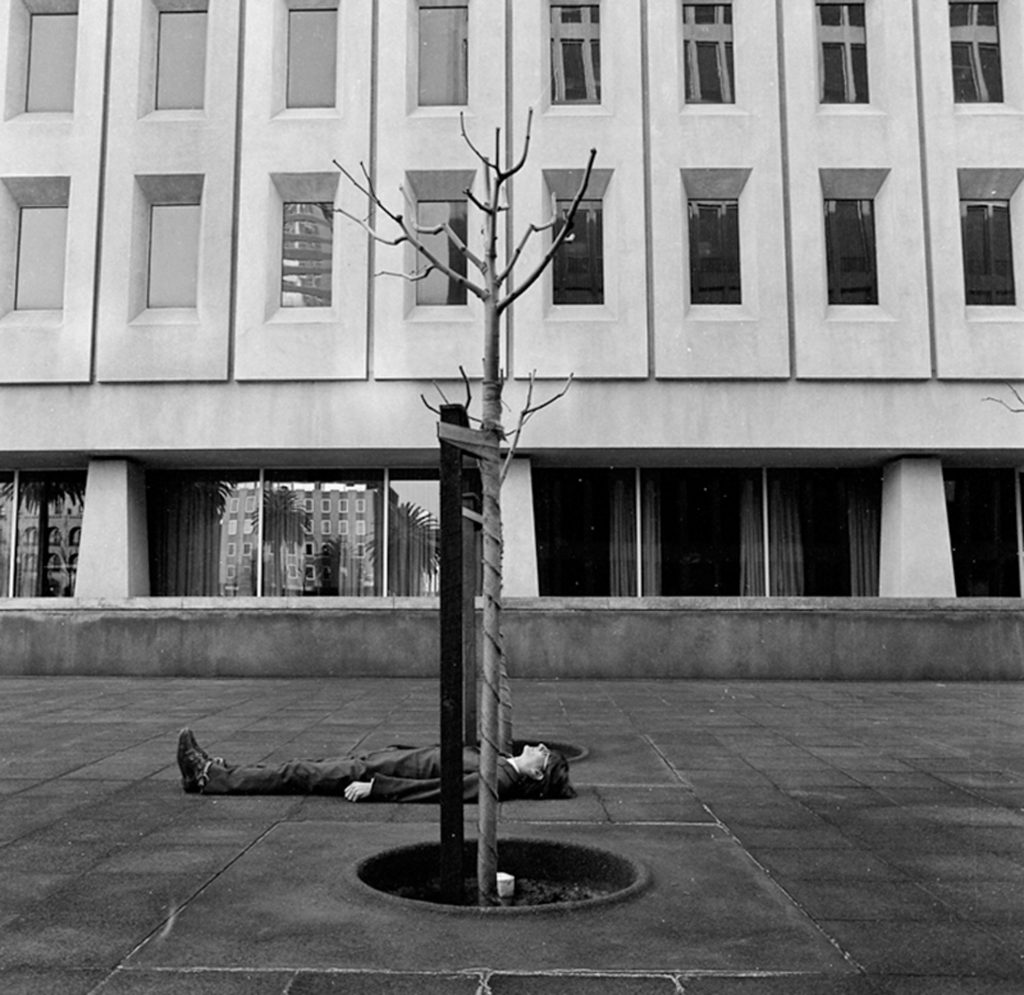Sue Ford, figure in cityscape, photograph, 1970s,
Summary
Photographer, filmmaker and photo-media artist Sue Ford (1943–2009) is considered one of Australia’s most important woman photographers of the second half of the 20th century. Studying and practising her art from the early 1960s, she cemented her reputation through her clear engagement with second-wave feminism in the early 1970s, with often simple, personal depictions of her subjects.
Establishing her practice at a time of energised consciousness raising in the West and urgent political activism, Ford used her camera to document the restless, crackling, dissenting mood of the times. At the heart of her work are the critical issues of gender, feminism, identity and Indigenous rights. Embodying the catchcry ‘the personal is political’, her photographs weave these critical threads into nuanced narratives of everyday life and social and political exchange in the public realm.
The Art and Heritage Collection holds a selection of Ford’s black-and-white photographs, spanning the 1960s to 80s, and ranging over her ethical and intellectual concerns. This is one of three photographs in the collection titled ‘Tony 1974’, a lone figure in a contained urban context. Absurdist in tone, the selenium-toned gelatin silver prints show the suited figure – standing, kneeling and prone – alone in the stark, alienating setting of bureaucratic buildings and bare, ferociously pruned saplings. They were printed from the original negatives in 2012, the year in which they entered the collection through the Contemporary Acquisitions Panel.
